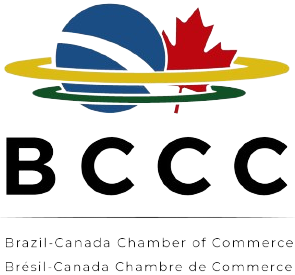The Brazilian government delivered to Congress a draft bill (Bill No. 3,887/2020) encompassing the unification of Federal Taxes with the creation of a Federal VAT named “Social Contribution on Goods and Services – CBS” (in Portuguese: “Contribuição Social sobre Operações com Bens e Serviços – CBS”). CBS will replace PIS and COFINS, which are Social Security Contributions charged on gross revenues.
This bill is the first step of a wider tax reform that is being proposed by the Federal government, which should be implemented in a phased process.
PIS and COFINS are currently one of the main sources of litigation between the tax administration and taxpayers especially around (i) the discussion on which inputs can be recoverable (i.e. which inputs generate PIS/COFINS credits); and (ii) the exclusion of ICMS (State VAT) and ISS (Municipal Service Tax) from PIS/COFINS calculation basis.
The government’s plan is to replace PIS/COFINS for a truly added value tax with a single tax rate of 12%. With few exceptions (e.g. oil & gas, tabaco), there will be no longer the existing situation of taxpayers being subject to PIS/COFINS under different regimes (i.e. cumulative regime) or other tax rates, for instance.
CBS will have a broad scope and should be levied not only on the sale of goods and services, but also on the import of goods and services, royalty payments and transactions with intangible assets.
By allowing a tax credit over the total amount of CBS shown on invoices related to the acquisition of goods and services from legal entities and/or on the import of goods and services, it is expected that the extensive litigation involving PIS and COFINS credits will cease to exist.
The new CBS also aims at taxing digital transactions that currently fall out of the scope of taxation. The digital platforms will be responsible for collecting CBS in those cases.
It is also expected that CBS will result in the simplification of some of the rather time-consuming ancillary obligations Brazilian companies are subject to.
The government claims that their proposal is not aiming at increasing the existing tax burden, but the proposed changes will clearly impose a higher burden for certain sectors (e.g. service companies; real estate; construction; infrastructure). Also, certain transactions that are currently not subject to PIS/COFINS-Imports (e.g. cross-border payment of royalties) will be subject to CBS.
It is proposed that CBS will be effective within 6 months of the approval of the proposed bill of law.
The timeline for approval remains uncertain, however, it has been granted priority status to this bill of law, which means its legislative process will be expedited. It is important to note that the government’s proposal will be debated before Congress and there is the possibility of amendments to the text being presented, therefore changes to the original text are expected. In any case, it is possible that an approval in the lower house could take place within 2020.
The federal government also announced the plans for the next phases of the tax reform, which should include the income tax reform, adjustments to the Excise Tax (IPI), reduction of social security taxes due on payroll and introduction of a new levy on digital payments.
There are other tax reform bills (Constitutional Amendment Bills – “PECs” 45 and 110) under discussion in the Congress. These represent more broad and substantial reforms to the indirect/consumption taxes in Brazil since it also covers State and municipal taxes (State VAT – ICMS and the Municipal Service Tax – ISS) and other Federal taxes. At this stage, there is no consensus in Congress for this broad reform.
Considering the far-reaching impacts of the government’s proposal, it is of utmost importance that companies operating in Brazil anticipate the changes and assess the potential implications to their businesses.
KPMG Brazil can help you in mapping the impacts of the proposed changes, prepare for the new rules and develop an implementation roadmap if needed.

